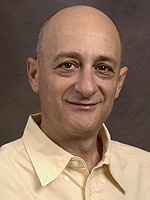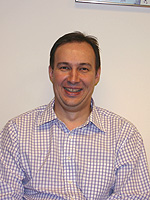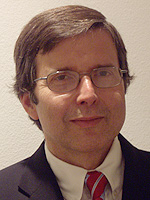Distinguished scholars join Chicago’s faculty, its academic mission
This year, more than 100 distinguished scholars are joining the Chicago faculty. As with each new academic year, the emphasis is on the future, said Provost Thomas Rosenbaum. “We are not interested in scholars who rest on their laurels—as impressive as they may be—but in those individuals actively grappling with the most important issues of our time and most successfully training students to become leaders in their chosen work.
“Our challenge will be to provide the resources to let these scholars thrive, and to create an environment where their interactions lead to unexpected insights,” he said.
The following individuals are a representative sample of the scholars who have received faculty appointments this year at the University:
A leading expert in political and feminist theory, Linda Zerilli has examined in her 2005 book, Feminism and the Abyss of Freedom, how the problem of feminine subjectivity persistently grounds all discussion of feminism.
Zerilli contends that the persistence of this subject-centered frame severely limits feminists’ capacity to think imaginatively about the central problem of feminist theory and practice, the political aspects of freedom. She also looked at the democratic problem of exclusion from participation in common affairs and elaborated a freedom-centered feminism.
Published by the University Press, Feminism and the Abyss of Freedom has been translated into Spanish and German and has been discussed at panels in Europe and in the United States.
Zerilli, who has been named the Charles E. Merriam Distinguished Service Professor in Political Science and the College, also is the author of Signifying Woman: Culture and Chaos in Rousseau, Burke, and Mill, published in 1994.
Zerilli holds a joint appointment with the Center for Gender Studies. She has chaired numerous panels on topics related to gender and feminism, and has served on editorial boards of a number of journals, including Political Theory, Polity and Constellations: An International Journal of Critical and Democratic Theory.
She joins the faculty after serving as a professor of political science at Northwestern University. She previously served on the faculty at Rutgers University and was the Marta Sutton Weeks faculty fellow at the Stanford Humanities Center from 2006 to 2007.
Zerilli received a Ph.D. in political science in 1986 from the University of California, Berkeley.
Omri Ben-Shahar has joined the faculty as the Frank and Bernice J. Greenberg Professor in the Law School.
 Omri Ben Shahar | |
Ben-Shahar is a scholar of private law whose interests lie in how legal rules create incentives for people to enter into and perform contracts, to resolve disputes efficiently and for manufacturers to design safe products.
Ben-Shahar’s work examines legal rules that potentially undermine the very social goals they are trying to advance. For example, his work on duress and coercion show how rules aimed at preventing coerced deals, entered into under threat, could unintentionally hurt the weak parties in those agreements.
In these cases of “credible coercion,” as he coined it, a repeal of a coerced deal will only lead to the execution of the threatened outcome, to the detriment of the coerced party. This theory suggests that it takes more than what the law is currently willing to do to help parties in these situations.
The theory finds many applications in commercial deals, consumer contracts, plea-bargaining and criminal law. Ben-Shahar is currently working on a study of the shortfalls of mandated disclosure regimes, tort liability’s distortion of incentives to repair defective products and a study of legal intervention in unconscionable contracts.
He is a graduate of the Hebrew University in Jerusalem and Harvard Law School. He also earned a Ph.D. in Economics from Harvard in 1995. He was formerly on the faculty of the University of Michigan Law School, where he founded the John M. Olin Center for Law and Economics in 1999.
Alexander Razborov, the Andrew MacLeish Distinguished Service Professor in Computer Science and the Physical Sciences Collegiate Division, focuses his research on complexity theory.
 Alexander Razborov | |
Razborov says complexity theory is an umbrella name for a number of disciplines that examine various scenarios in which certain tasks should be accomplished with limited resources. The goal of complexity theory is to find an optimum expenditure of these computational resources.
Complexity theorists measure their success by what they call a “complexity measure.” Solving algorithmic problems with circuits, for example, is measured by the amount of hardware required to answer them. In proof complexity, where the task is to prove a theorem, the length of the proof is the measure of the complexity.
This work is mostly devoted to proving that certain important tasks are difficult and are likely to require substantial expenditures of resources, says Razborov.
Razborov also occasionally works in combinatorics, which deals with collections of objects that meet selected criteria.
Razborov received his Ph.D. from the Steklov Mathematical Institute, Moscow, in 1987. He is the recipient of the 1990 Rolf Nevanlinna Prize of the International Mathematical Union and the 2007 Göedel Prize of the European Association for Theoretical Computing and the Association for Computing Machinery.
Panagiotis Souganidis, the Charles H. Swift Professor in Mathematics and the College, specializes in partial differential equations. He is especially interested in developing qualitative methods for the analysis of solutions to equations that describe a wide range of phenomena in science and engineering.
 Panagiotis Souganides | |
Souganidis notes that most of the fundamental laws of nature and many mathematical models used in the natural sciences, social sciences, engineering and even the basic models used in the financial markets, are formulated in the language of differential equations.
The most interesting and important partial differential equations to a mathematician usually offer no straightforward solution. In his field, even generalized solutions often need to be tailor-made to the specific properties and structure of the problems in question.
Among his contributions to the field, Souganidis is noted for providing a deeper understanding of equations pertaining to turbulent combustion, gas dynamics and modeling in random environments.
Souganidis earned his Ph.D. in mathematics from the University of Wisconsin, Madison, in 1983. His honors a Presidential Young Investigator Award (1987), an Alfred P. Sloan Fellowship (1989) and the 1996 Bodossaki Foundation Academic Prize, which is awarded to outstanding Greek scholars under the age of 40.
Editor’s note: To read stories about all of the newly appointed faculty members, please check the University’s Web site, where content of a New Faculty booklet will appear later in the Fall Quarter. All stories were written by Sarah Galer, William Harms, Steve Koppes, Josh Schonwald and Vanessa Sumo.
![[Chronicle]](/images/sidebar_header_oct06.gif)